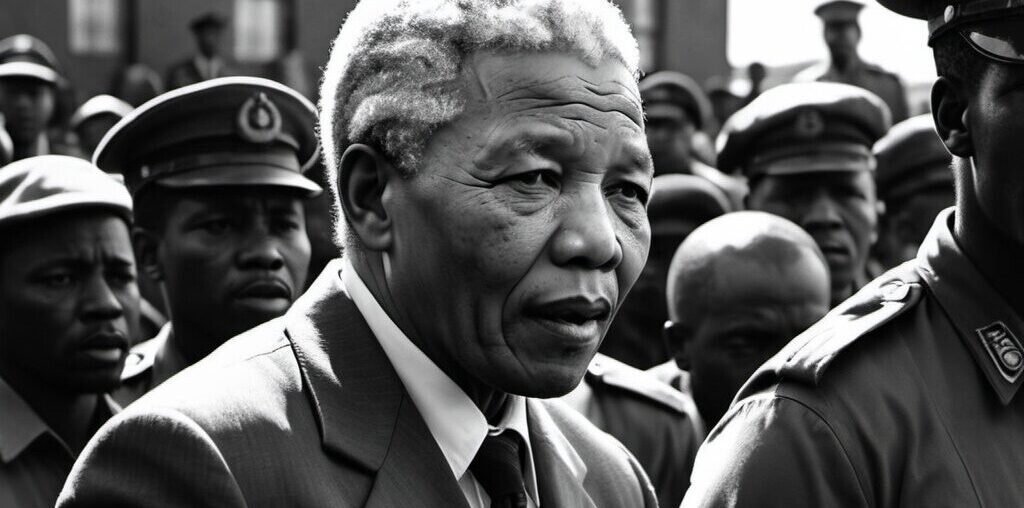The Background
In the struggle against apartheid, Nelson Mandela emerged as one of the most influential figures. On August 5, 1962, he was arrested during a covert operation as he was traveling between Durban and Johannesburg. Up until that point, Mandela had been an active leader in the African National Congress (ANC) and had co-founded the military wing Umkhonto we Sizwe (MK), which aimed to wage a guerrilla struggle against the apartheid regime.
What Happened
Mandela’s arrest was a dramatic event. Posing as a chauffeur in a car driven by Cecil Williams, Mandela was stopped by the police. This was no random checkpoint; it was a carefully orchestrated move that had the apartheid authorities jubilant. Mandela had already evaded capture several times and had even earned the nickname ‘The Black Pimpernel.’ His arrest led to a series of trials, including the infamous Rivonia Trial, where Mandela and other ANC leaders were sentenced to life imprisonment.
Future Impact
The arrest of Nelson Mandela had far-reaching consequences. Initially, it seemed like a severe blow to the anti-apartheid movement. However, Mandela’s incarceration became a rallying point for global awareness and solidarity against the South African regime. Over the years, anti-apartheid sentiment grew internationally, and Mandela’s status transformed from a ‘terrorist’ in the eyes of some to a symbol of resistance and moral integrity. His eventual release in 1990 marked the beginning of the end for apartheid and set the stage for him to become South Africa’s first Black president in 1994.
The arrest of Nelson Mandela on August 5, 1962, was not just a pivotal moment for South Africa but a significant chapter in the global fight for equality and human rights. Through his resilience, Mandela inspired change not only in his country but around the world.

